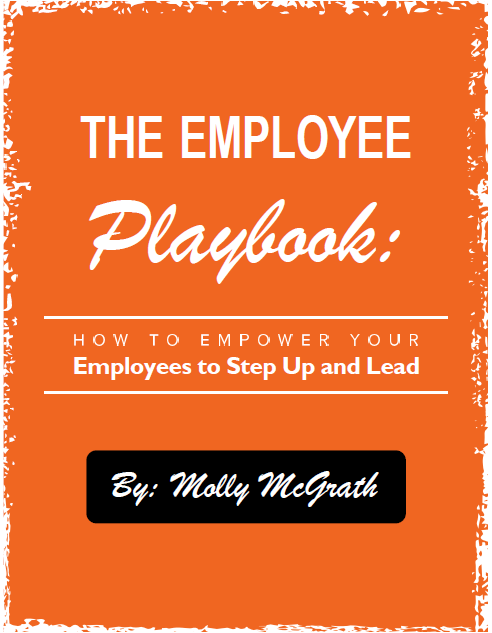 Employees, please remember that your boss may be a lot of things—an attorney, an entrepreneur, and simultaneously the director of operations, finance, marketing and sales—but there is one thing your boss will never be: a mind reader.
Employees, please remember that your boss may be a lot of things—an attorney, an entrepreneur, and simultaneously the director of operations, finance, marketing and sales—but there is one thing your boss will never be: a mind reader.
Expecting your boss (or anyone in your life, for that matter) to intuitively know what you need, what you’re thinking, and what you’re feeling is only going to set you up for disappointment. Plus, in a world of employee empowerment and self-advocation, that victimized mindset of “he’s just a bad boss” is SO 1989…
If you want to make more money, gain access to greater opportunities for leadership development, and for your boss to finally do his or her job, here are 12 tips to help you recognize that your job actually IS the dream job you were promised:
1. Entrepreneurs can be shortsighted. It is not always obvious to them that they are blowing past deadlines, costing the firm money, and killing the team at the 11th hour because they failed to plan sufficiently. You need to be clear, concise and bottomline with your communication. Passive aggression is a foreign language to most law firm leaders, so it’s on you if you continue to speak in non-confrontational, indirect, hope-he-gets-the-hint tongues.
2. Own the office equipment. If you need a high-end printer, a $300 wireless headset, a new laptop, etc…communicate the cost to your boss and explain why it’s necessary. Your boss isn’t the one running off a 100-page document and hour before that important client meeting. Bosses don’t notice the lost time and inefficiency of doing things the “cheap,” way. Instead of complaining that you don’t have the equipment you need to do your job, step up and speak up! Trust me…your boss WANTS you to be able to do your job at maximum capacity and will get you what you need to do so—within reason, of course.
3. Crying is blackmail. The office is not the place to shed tears. Take a walk if you need to let it out. However, a lot of crying could be altogether avoided if you simply ask for what you want and need. Subtle hints do not work. Strong hints do not work. Obvious hints do not work. HINTS DO NOT WORK! Speak up for what you need!
4. “Yes” and “no” are perfectly acceptable answers to almost every question. Don’t “yes” your boss when, inside, you’re saying, “hell no.” And if the answer is “no,” just explain why. Saying yes and then not following through with commitment, conviction and excitement are kindling for lack of faith and trust.
5. Come to your boss with a problem only if you want help solving it. That’s what entrepreneurs do. They solve problems. Digging for sympathy and gossiping about your coworkers are what your friends are for.
6. Anything that your boss said six weeks ago is inadmissible without follow up in your weekly team meeting, or clarification and verification on timelines, project management and SMR’s. In fact, all comments become null and void after seven days if you don’t follow up on them. It is your job to “babysit” your boss. Consider it an honor that they’ve shared the depths of their business with you. In the corporate world, that doesn’t happen until you’re being handed an HR warning or pink slip.
7. If you are unclear about what is being asked of your, feel you’re underperforming, or not grasping your job description—you probably are. Take responsibility for your own clarity and schedule a meeting with your boss. Complaining that your boss didn’t provide you with enough direction to succeed doesn’t help your career or the firm’s performance.
8. If something your boss said can be interpreted two ways, and one of those ways makes you sad or angry, they meant the other one. This may sound like a huge assumption—but trust us, it’s not. We guarantee that your boss didn’t mean it “that way.” The business world was built by adults, for adults. Take responsibility for your own clarity and schedule a meeting with your boss to discuss what was said.
9. You can either ask your boss to do something, or tell your boss how you want it done. Not both. If you already know best how to perform a certain task, communicate it and enroll them into the WHY by explaining the impact it will make on the business, clients and end result.
10. Whenever possible, please say whatever you have to say outside of the office—ideally over food or coffee. Hallway conversations and drive-bys in between client appointments will not give you the time and attention you need. It’s the equivalent of a 20-year old running through the dining room during a dinner party saying, “By the way, mom and dad, I’m dropping out of college.”
11. If your boss or co-worker asks what is wrong and you say “nothing,” they will believe you and will act like nothing is wrong. The trust is that your boss knows you are lying, but it’s not worth the game-playing to dig much deeper than that. Address your concerns in real time, or schedule an appropriate time and place to discuss them if they can’t wait—but don’t wait too long! Don’t get to a place where you can chalk your feelings off as being “not that big of a deal” because they will rear their ugly heads again soon enough.
12. If you ask a question you don’t want an answer to, expect an answer you don’t want to hear.
Working at a small firm has its many pros. But office drama, lack of accountability, and feeling like your boss is always being pulled in a million uncontrollable directions is typical. However, it doesn’t have to be something you have to live with. Working in a small firm provides endless autonomy. Your “boss” is desperate for you to fully trust that you have permission to tell him or her what you need, what the firm needs, and what your co-workers and other stakeholders need. Trust me—your boss isn’t ignoring these things. They simply just can’t see it while entrenched in the day-to-day operation of their firm. That is why they surround themselves with key employees, like you, who they can depend on to tell them what’s coming at them, and what they need to clean up behind them.
Click the button below to schedule a call with our founder, Molly McGrath, and start a conversation about what’s going on at your firm and what you’d like to see change. We’ll start brainstorming some solutions!


